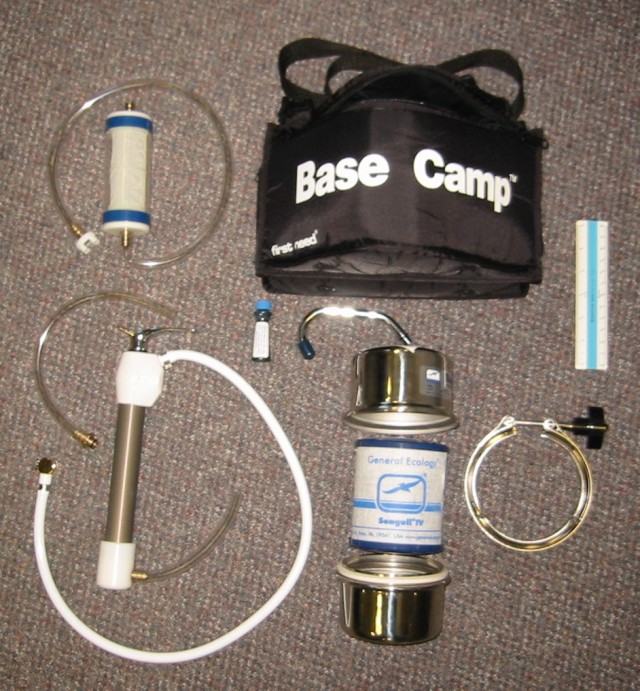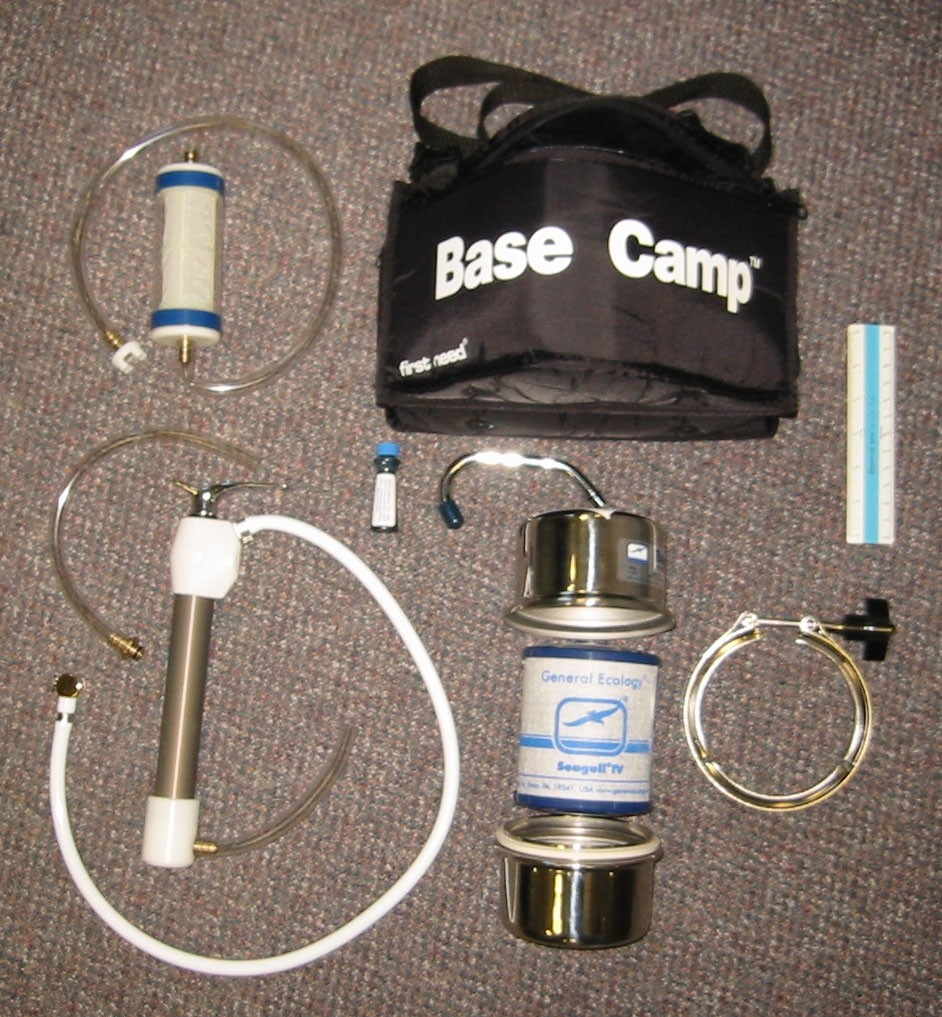ABERDEEN PROVING GROUND, Md., Feb. 23, 2007 - The problem of "Water, water, everywhere, nor any drop to drink" can apply as much to deployed troops cut off from their pure water supply as it did to the ancient mariner stranded at sea in Samuel Taylor Coleridge's beloved poem.
Clean water is critical to military operations, used in everything from drinking to hygiene and field sanitation to food preparation to medical care, Army Maj. Bill Bettin, chief of the field water section for the Army Center for Health Promotion and Preventive Medicine here, told American Forces Press Service.
The typical deployed troop pours through 15 to 20 gallons of water a day, he said.
Recognizing the importance of water to the military mission, the services have sophisticated water purification and supply networks to ensure troops are never left high and dry. An old Quartermaster Corps adage captures water's importance to servicemembers: "The ultimate weapon runs on water, and everything else runs on fuel."
But what happens when troops find themselves operating away from their established water supply lines with little chance of getting their water supply replenished before it runs out'
Bacteria, viruses and parasites make many local water sources unsafe, Bettin said, and simply boiling water isn't always enough to ensure contaminants are destroyed.
So for emergency situations or operations in remote areas with no water resupply available, troops resort to disinfecting surface water they find with iodine tablets or purifying it with charcoal-based filtering systems. The problem, Bettin said, is that current military-issued purifiers work slowly and may not be as effect as possible.
Commercial water-purification systems have become popular among hikers and campers, and outdoor magazines and catalogs tout their benefits. But until recently, the military hadn't systematically tested these systems and wasn't able to tell deploying units which ones might best suit their needs, Bettin said.
To come up with an answer, the Army Center for Health Promotion and Preventive Medicine launched an 18-month scientific study of 68 commercial, off-the-shelf water-purification systems.
As they evaluated these systems, Bettin and his staff quickly realized that there's no one-size-fits-all answer to military water-purification requirements. "We had planned to pick one product to recommend, but because of the different scenarios units operate under, there was no one solution for every unit," he said.
Instead, they came up with an online decision tool units can use to select the best water purification system for their exact circumstances. That tool, posted on the center's Web site (see link below article), helps units evaluate what might work best for them and what doesn't work at all, he said. "We found that some (commercial) claims were groundless, and we were able to weed out the non-performers," he said.
Which personal water purifier works best depends on a range of considerations, Bettin said. Units operating at a stationary base camp might find that one system best fits their needs, while troops on the move, either mounted or dismounted, might need something altogether different. In an emergency situation that leaves forces cut off from their existing supply lines, an entirely different system might be the answer, he said.
But other factors play into the decision, as well, including the size and weight of the system, how easy it is to use, its cost, and most importantly, its effectiveness.
The new decision tool has proven to be popular among military members trying to sift through the myriad commercial pitches by water-purification companies. "We've gotten feedback from users who like that it's easy to use and apply," Bettin said.
Civilian outdoorsmen are also accessing the site and reporting its value, he said. Among them was a high school teacher who thanked Bettin for helping him select water-purification systems for a school camping trip.
Just how effective the new site has been in helping prevent troops from drinking contaminated water or having to scale back their water usage due to shortages is tough to tell, Bettin acknowledged.
"That's the whole challenge of preventive medicine," he said. "We know that it's providing a positive result, but it's hard to report what you've prevented."


Social Sharing